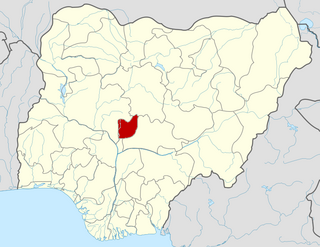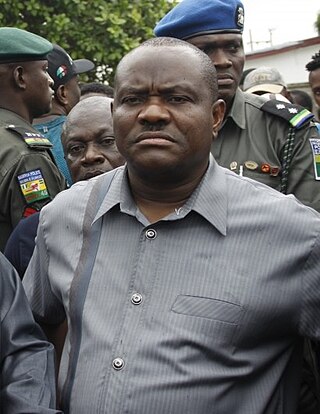| Abia | - Gub.: 1991, 1999, 2003, 2007, 2011, 2015, 2019, 2023
- HOA: 1991, 1998, 1999, 2003, 2007, 2011, 2015, 2019, 2023
- LGA: 1996, 1997, 1998, 2004, 2008, 2016, 2020
|
|---|
| Adamawa | - Gub.: 1991, 1999, 2003, 2007, 2008, 2012, 2015, 2019, 2023
- HOA: 1991, 1998, 1999, 2003, 2007, 2011, 2015, 2019, 2023
- LGA: 1996, 1997, 1998, 2004, 2008, 2012, 2016, 2019, 2022
|
|---|
| Akwa Ibom | - Gub.: 1991, 1999, 2003, 2007, 2011, 2015, 2019, 2023
- HOA: 1991, 1998, 1999, 2003, 2007, 2011, 2015, 2019, 2023
- LGA: 1987, 1990, 1996, 1997, 1998, 2004, 2007, 2012, 2017, 2020
|
|---|
| Anambra | - Gub.: 1979, 1983, 1991, 1999, 2003, 2007, 2010, 2013, 2017, 2021, 2025
- HOA: 1979, 1983, 1991, 1998, 1999, 2003, 2007, 2011, 2015, 2019, 2023
- LGA: 1987, 1990, 1996, 1997, 1998, 2014, 2022
|
|---|
| Bauchi | - Gub.: 1979, 1983, 1991, 1999, 2003, 2007, 2011, 2015, 2019, 2023
- HOA: 1979, 1983, 1991, 1998, 1999, 2003, 2007, 2011, 2015, 2019, 2023
- LGA: 1987, 1990, 1996, 1997, 1998, 2004, 2007, 2020
|
|---|
Bendel
(defunct) | |
|---|
| Bayelsa | - Gub.: 1999, 2003, 2007, 2008, 2012, 2015, 2019, 2023
- HOA: 1998, 1999, 2003, 2007, 2011, 2015, 2019, 2023
- LGA: 1996, 1997, 1998, 2004, 2013, 2019
|
|---|
| Benue | - Gub.: 1979, 1983, 1991, 1999, 2003, 2007, 2011, 2015, 2019, 2023
- HOA: 1979, 1983, 1991, 1998, 1999, 2003, 2007, 2011, 2015, 2019, 2023
- LGA: 1987, 1990, 1996, 1997, 1998, 2004, 2012, 2017, 2020
|
|---|
| Borno | - Gub.: 1979, 1983, 1991, 1999, 2003, 2007, 2011, 2015, 2019, 2023
- HOA: 1979, 1983, 1991, 1998, 1999, 2003, 2007, 2011, 2015, 2019, 2023
- LGA: 1987, 1990, 1996, 1997, 1998, 2004, 2007, 2020
|
|---|
| Cross River | - Gub.: 1979, 1983, 1991, 1999, 2003, 2007, 2008, 2012, 2015, 2019, 2023
- HOA: 1979, 1983, 1991, 1998, 1999, 2003, 2007, 2011, 2015, 2019, 2023
- LGA: 1987, 1990, 1996, 1997, 1998, 2004, 2007, 2010, 2013, 2020
|
|---|
| Delta | - Gub.: 1991, 1999, 2003, 2007, Jan. 2011, Apr. 2011, 2015, 2019, 2023
- HOA: 1991, 1998, 1999, 2003, 2007, 2011, 2015, 2019, 2023
- LGA: 1996, 1997, 1998, 2004, 2008, 2014, 2018, 2021
|
|---|
| Ebonyi | - Gub.: 1999, 2003, 2007, 2011, 2015, 2019, 2023
- HOA: 1998, 1999, 2003, 2007, 2011, 2015, 2019, 2023
- LGA: 1996, 1997, 1998, 2004, 2007, 2010, 2013, 2020
|
|---|
| Edo | - Gub.: 1991, 1999, 2003, 2007, 2012, 2016, 2020, 2024
- HOA: 1991, 1998, 1999, 2003, 2007, 2011, 2015, 2019, 2023
- LGA: 1996, 1997, 1998, 2004, 2013, 2018
|
|---|
| Ekiti | - Gub.: 1999, 2003, 2007, 2009, 2014, 2018, 2022
- HOA: 1998, 1999, 2003, 2007, 2011, 2015, 2019, 2023
- LGA: 1996, 1997, 1998, 2004, 2008, 2017, 2019, 2021
|
|---|
| Enugu | - Gub.: 1991, 1999, 2003, 2007, 2011, 2015, 2019, 2023
- HOA: 1991, 1998, 1999, 2003, 2007, 2011, 2015, 2019, 2023
- LGA: 1996, 1997, 1998, 2004, 2007, 2009, 2011, 2013, 2017, 2020, 2022
|
|---|
| | FCT | - LGA: 1987, 1990, 1996, 1997, 1998, 2004, 2007, 2010, 2013, 2016, 2019, 2022
|
|---|
Gongola
(defunct) | |
|---|
| Gombe | - Gub.: 1999, 2003, 2007, 2011, 2015, 2019, 2023
- HOA: 1998, 1999, 2003, 2007, 2011, 2015, 2019, 2023
- LGA: 1996, 1997, 1998, 2004, 2013, 2017, 2020
|
|---|
| Imo | - Gub.: 1979, 1983, 1991, 1999, 2003, 2007, 2011, 2015, 2019, 2024
- HOA: 1979, 1983, 1991, 1998, 1999, 2003, 2007, 2011, 2015, 2019, 2023
- LGA: 1987, 1990, 1996, 1997, 1998, 2004, 2010, 2018, 2022
|
|---|
| Jigawa | - Gub.: 1991, 1999, 2003, 2007, 2011, 2015, 2019, 2023
- HOA: 1991, 1998, 1999, 2003, 2007, 2011, 2015, 2019, 2023
- LGA: 1990, 1996, 1997, 1998, 2004, 2010, 2014, 2017, 2019, 2021
|
|---|
| Kaduna | - Gub.: 1979, 1983, 1991, 1999, 2003, 2007, 2011, 2015, 2019, 2023
- HOA: 1979, 1983, 1991, 1998, 1999, 2003, 2007, 2011, 2015, 2019, 2023
- LGA: 1987, 1990, 1996, 1997, 1998, 2004, 2008, 2012, 2018, 2021
|
|---|
| Kano | - Gub.: 1979, 1983, 1991, 1999, 2003, 2007, 2011, 2015, 2019, 2023
- HOA: 1979, 1983, 1991, 1998, 1999, 2003, 2007, 2011, 2015, 2019, 2023
- LGA: 1987, 1990, 1996, 1997, 1998, 2004, 2007, 2014, 2018, 2021
|
|---|
| Katsina | - Gub.: 1991, 1999, 2003, 2007, 2011, 2015, 2019, 2023
- HOA: 1991, 1998, 1999, 2003, 2007, 2011, 2015, 2019, 2023
- LGA: 1987, 1990, 1996, 1997, 1998, 2004, 2008, 2014
|
|---|
| Kebbi | - Gub.: 1991, 1999, 2003, 2007, 2011, 2012, 2015, 2019, 2023
- HOA: 1991, 1998, 1999, 2003, 2007, 2011, 2015, 2019, 2023
- LGA: 1996, 1997, 1998, 2004, 2008, 2012, 2017, 2019, 2022
|
|---|
| Kogi | - Gub.: 1991, 1999, 2003, 2007, 2008, 2011, 2015, 2019, 2023
- HOA: 1991, 1998, 1999, 2003, 2007, 2011, 2015, 2019, 2023
- LGA: 1996, 1997, 1998, 2004, 2008, 2013, 2020
|
|---|
| Kwara | - Gub.: 1979, 1983, 1991, 1999, 2003, 2007, 2011, 2015, 2019, 2023
- HOA: 1979, 1983, 1991, 1998, 1999, 2003, 2007, 2011, 2015, 2019, 2023
- LGA: 1987, 1990, 1996, 1997, 1998, 2004, 2008, 2010, 2013, 2017
|
|---|
| | Lagos | - Gub.: 1979, 1983, 1991, 1999, 2003, 2007, 2011, 2015, 2019, 2023
- HOA: 1979, 1983, 1991, 1998, 1999, 2003, 2007, 2011, 2015, 2019, 2023
- LGA: 1987, 1990, 1996, 1997, 1998, 2004, 2008, 2011, 2017, 2021
|
|---|
| Nasarawa | - Gub.: 1999, 2003, 2007, 2011, 2015, 2019, 2023
- HOA: 1998, 1999, 2003, 2007, 2011, 2015, 2019, 2023
- LGA: 1997, 1998, 2004, 2008, 2014, 2018, 2021
|
|---|
| Niger | - Gub.: 1979, 1983, 1991, 1999, 2003, 2007, 2011, 2015, 2019, 2023
- HOA: 1979, 1983, 1991, 1998, 1999, 2003, 2007, 2011, 2015, 2019, 2023
- LGA: 1987, 1990, 1996, 1997, 1998, 2004, 2008, 2016, 2019
|
|---|
| Ogun | - Gub.: 1979, 1983, 1991, 1999, 2003, 2007, 2011, 2015, 2019, 2023
- HOA: 1979, 1983, 1991, 1998, 1999, 2003, 2007, 2011, 2015, 2019, 2023
- LGA: 1987, 1990, 1996, 1997, 1998, 2004, 2008, 2012, 2016, 2021
|
|---|
| Ondo | - Gub.: 1979, 1983, 1991, 1999, 2003, 2007, 2012, 2016, 2020, 2024
- HOA: 1979, 1983, 1991, 1998, 1999, 2003, 2007, 2011, 2015, 2019, 2023
- LGA: 1987, 1990, 1996, 1997, 1998, 2004, 2008, 2016, 2020
|
|---|
| Osun | - Gub.: 1991, 1999, 2003, 2007, 2014, 2018, 2022
- HOA: 1991, 1998, 1999, 2003, 2007, 2011, 2015, 2019, 2023
- LGA: 1996, 1997, 1998, 2004, 2007, 2018
|
|---|
| Oyo | - Gub.: 1979, 1983, 1991, 1999, 2003, 2007, 2011, 2015, 2019, 2023
- HOA: 1979, 1983, 1991, 1998, 1999, 2003, 2007, 2011, 2015, 2019, 2023
- LGA: 1987, 1990, 1996, 1997, 1998, 2004, May 2007, Dec. 2007, 2018, 2021
|
|---|
| Plateau | - Gub.: 1979, 1983, 1991, 1999, 2003, 2007, 2011, 2015, 2019, 2023
- HOA: 1979, 1983, 1991, 1998, 1999, 2003, 2007, 2011, 2015, 2019, 2023
- LGA: 1987, 1990, 1996, 1997, 1998, 2004, 2008, 2014, 2018, 2021
|
|---|
| Rivers | - Gub.: 1979, 1983, 1991, 1999, 2003, 2007, 2011, 2015, 2019, 2023
- HOA: 1979, 1983, 1991, 1998, 1999, 2003, 2007, 2011, 2015, 2019, 2023
- LGA: 1987, 1990, 1996, 1997, 1998, 2004, 2008, 2015, 2018, 2021
|
|---|
| Sokoto | - Gub.: 1979, 1983, 1991, 1999, 2003, 2008, 2007, 2012, 2015, 2019, 2023
- HOA: 1979, 1983, 1991, 1998, 1999, 2003, 2007, 2011, 2015, 2019, 2023
- LGA: 1987, 1990, 1996, 1997, 1998, 2004, 2008, 2011, 2016, 2021
|
|---|
| Taraba | - Gub.: 1991, 1999, 2003, 2007, 2011, 2015, 2019, 2023
- HOA: 1991, 1998, 1999, 2003, 2007, 2011, 2015, 2019, 2023
- LGA: 1996, 1997, 1998, 2004, 2007, 2012, 2017, 2020
|
|---|
| Yobe | - Gub.: 1991, 1999, 2003, 2007, 2011, 2015, 2019, 2023
- HOA: 1991, 1998, 1999, 2003, 2007, 2011, 2015, 2019, 2023
- LGA: 1996, 1997, 1998, 2004, 2009, 2013, 2019, 2021
|
|---|
| Zamfara | - Gub.: 1999, 2003, 2007, 2011, 2015, 2019, 2023
- HOA: 1998, 1999, 2003, 2007, 2011, 2015, 2019, 2023
- LGA: 1997, 1998, 2004, 2008, 2012, 2016, 2019
|
|---|
|








